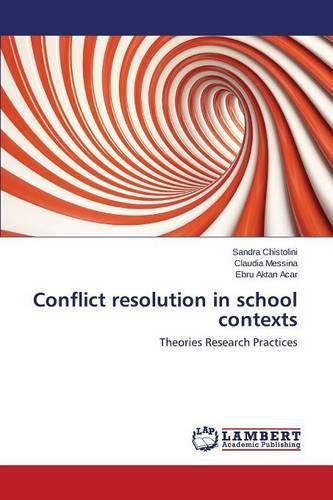Readings Newsletter
Become a Readings Member to make your shopping experience even easier.
Sign in or sign up for free!
You’re not far away from qualifying for FREE standard shipping within Australia
You’ve qualified for FREE standard shipping within Australia
The cart is loading…






This title is printed to order. This book may have been self-published. If so, we cannot guarantee the quality of the content. In the main most books will have gone through the editing process however some may not. We therefore suggest that you be aware of this before ordering this book. If in doubt check either the author or publisher’s details as we are unable to accept any returns unless they are faulty. Please contact us if you have any questions.
Complexity and interculturalism characterize the worldwide societies. Though for many aspects these multiple forms convey a positive meaning, from other points of view a problematic communication seems to generate the increasing of conflicts. According to several perspectives of study, conflict is considered as something that cannot be avoided; it is constantly present and it poses relevant pedagogical problems. The focus is less on individual variables, and more on the environmental factors which interact and play a crucial role in the diverse situations of the social life. Alternatively, conflict is also considered as an opportunity for personal changes, structured groups and organizations affected. The purpose of this book is to describe conflict resolution by analyzing theoretical aspects that support research and practice. Empirical results present the efforts made in school contexts to prevent aggression and violence. Finally, discussion is open to implement good practices in peace education and provide valuable experiences for a new democratic culture in tune with the sense of our shared responsibility. The book includes the Questionnaire for teachers.
$9.00 standard shipping within Australia
FREE standard shipping within Australia for orders over $100.00
Express & International shipping calculated at checkout
This title is printed to order. This book may have been self-published. If so, we cannot guarantee the quality of the content. In the main most books will have gone through the editing process however some may not. We therefore suggest that you be aware of this before ordering this book. If in doubt check either the author or publisher’s details as we are unable to accept any returns unless they are faulty. Please contact us if you have any questions.
Complexity and interculturalism characterize the worldwide societies. Though for many aspects these multiple forms convey a positive meaning, from other points of view a problematic communication seems to generate the increasing of conflicts. According to several perspectives of study, conflict is considered as something that cannot be avoided; it is constantly present and it poses relevant pedagogical problems. The focus is less on individual variables, and more on the environmental factors which interact and play a crucial role in the diverse situations of the social life. Alternatively, conflict is also considered as an opportunity for personal changes, structured groups and organizations affected. The purpose of this book is to describe conflict resolution by analyzing theoretical aspects that support research and practice. Empirical results present the efforts made in school contexts to prevent aggression and violence. Finally, discussion is open to implement good practices in peace education and provide valuable experiences for a new democratic culture in tune with the sense of our shared responsibility. The book includes the Questionnaire for teachers.